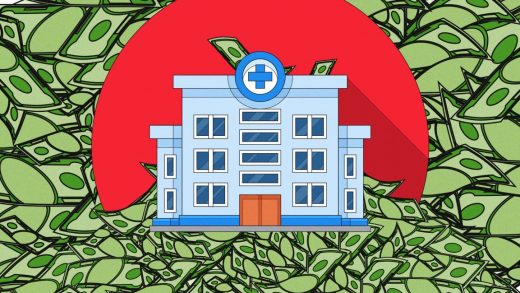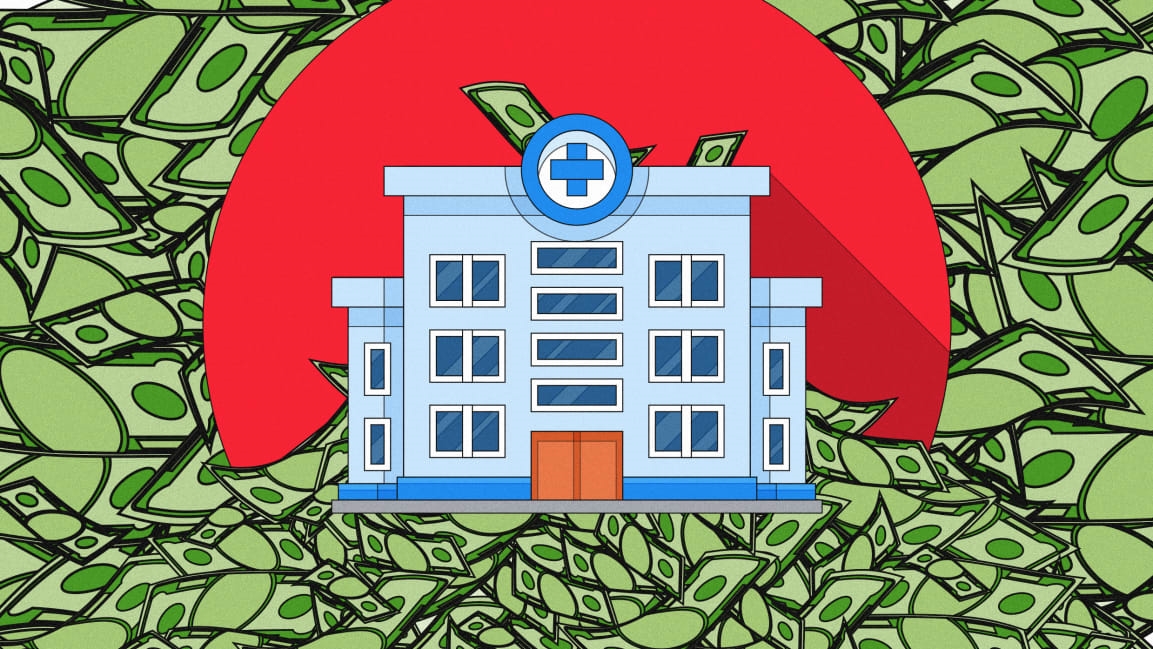This company wants to help you lower your medical bills (so long as you tip)
The number-one trigger for personal bankruptcy in the United States is medical bills. A company called Earnin wants to help people figure out how to pay for them.
The company says it will negotiate medical bills with hospitals on behalf of its users, helping them to lower the overall price of the bill, set up a payment plan, or possibly have the debt forgiven. The service, called HealthAid, is free. Earnin says to get access people will need to download its cash-advance mobile app and upload a photo of their outstanding medical bill. If you don’t have insurance (or owe money beyond what insurance will pay), the company will call the provider and try to lower your bill. The service will begin in July and will only be available to current app users. In March, the New York Post reported 10 million people have download Earnin’s app, citing Apptopia data; the company has hired 10 people to handle medical bill negotiations.
Earnin launched in 2012 under the name Active Hours, as an alternative to payday loans. The company calculates a worker’s future earnings based on GPS location and other information about their job. Users can then get cash from Earnin based on the hours they’ve already worked if they need the money before their next paycheck. Earnin then debits the user’s bank account for the money it advanced after their paycheck is supposed to arrive (if it gets this timing wrong, though, users end up with overdraft fees, and this has happened enough that the Better Business Bureau notes the company has a “pattern of complaints”).
The service is free, though Earnin asks its users for donations, though there are questions about how aggressively the company pushes users to “tip.” A report from the New York Post in March, said that the app promotes tipping by making the service easier to use for those that do. For instance, Earnin’s Balance Shield feature, which puts $100 into a user’s bank account if the balance gets perilously close to $0, is technically free, but can only be set up as an automatically recurring service with a tip. A common tip suggestion, according the New York Post, is $9 for a $100 one-week loan–a very high fee if it were mandatory. The company’s CEO, Ram Palaniappan, says tipping has injected meaningful capital into the company, though he declined to specify revenue or whether the company was profitable.
But Earnin’s CEO insists he’s just trying to help customers pay their bills. In a pilot of more than 250 users that the company has been running since January, they say that they were able to reduce more than 400 bills an average of $100 (the average total bill was $740). “The purpose of the business is to fight unfairness,” says Palaniappan. Still, offering help to reduce medical debt marks a financial opportunity for the company by getting new users to download its app. The company also says that no features of the medical bill product will require tips to function.
Certainly, there are a lot of people who need helping managing medical debt. About 66% of personal bankruptcies between 2013 and 2016 were because of medical debt, according to a study published in February. In January, a Gallup Poll showed the number of Americans without health insurance grew 2.8 percentage points since President Trump took office. More Americans are also underinsured than they were in 2010, meaning their health insurance doesn’t provide adequate financial coverage for their level of medical need, according to the Commonwealth Fund. Furthermore, Americans don’t have much in the way of savings. The Federal Reserve issued a report last year that said 40% of Americans in 2017 could not cover an unexpected $400 expense; more than a fifth could not pay their existing monthly bills.
Earnin’s average user makes between $25,000 and $75,000 per year. Helping Americans manage their medical debt is potentially a very good marketing strategy for growing its user base, if it’s successful. A robust user base is particularly advantageous to Earnin, because its pay-as-you-wish model makes its revenue cycle unpredictable. More users means it can more easily spread its costs. “The business needs to be profitable overall,” says Palaniappan, “it doesn’t need to be profitable per customer.”
This article has been updated to include the specific amount of medical bills reduced in the pilot and more information from the company on if any features will require tipping.
(18)



